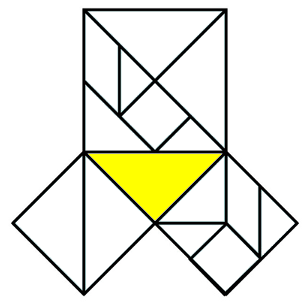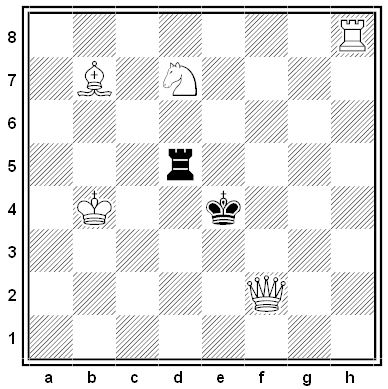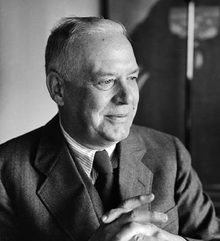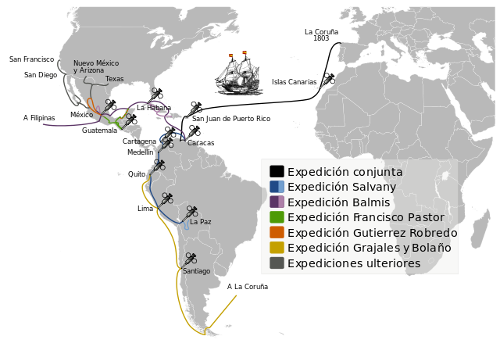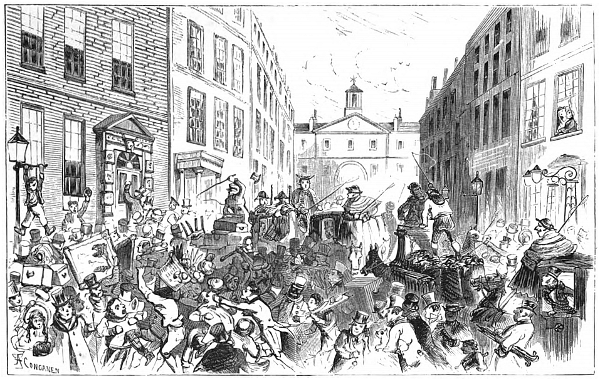Ook! is a programming language designed to be understood by orangutans. According to the design specification, the language has only three syntax elements (“Ook.” “Ook?” “Ook!”), and it “has no need of comments. The code itself serves perfectly well to describe in detail what it does and how it does it. Provided you are an orang-utan.”
This example prints the phrase “Hello world”:
Ook. Ook? Ook. Ook. Ook. Ook. Ook. Ook. Ook. Ook. Ook. Ook. Ook. Ook. Ook. Ook. Ook. Ook. Ook. Ook. Ook! Ook? Ook? Ook. Ook. Ook. Ook. Ook. Ook. Ook. Ook. Ook. Ook. Ook. Ook. Ook. Ook. Ook. Ook. Ook. Ook. Ook? Ook! Ook! Ook? Ook! Ook? Ook. Ook! Ook. Ook. Ook? Ook. Ook. Ook. Ook. Ook. Ook. Ook. Ook. Ook. Ook. Ook. Ook. Ook. Ook. Ook! Ook? Ook? Ook. Ook. Ook. Ook. Ook. Ook. Ook. Ook. Ook. Ook. Ook? Ook! Ook! Ook? Ook! Ook? Ook. Ook. Ook. Ook! Ook. Ook. Ook. Ook. Ook. Ook. Ook. Ook. Ook. Ook. Ook. Ook. Ook. Ook. Ook. Ook! Ook. Ook! Ook. Ook. Ook. Ook. Ook. Ook. Ook. Ook! Ook. Ook. Ook? Ook. Ook? Ook. Ook? Ook. Ook. Ook. Ook. Ook. Ook. Ook. Ook. Ook. Ook. Ook. Ook. Ook. Ook. Ook. Ook. Ook! Ook? Ook? Ook. Ook. Ook. Ook. Ook. Ook. Ook. Ook. Ook. Ook. Ook? Ook! Ook! Ook? Ook! Ook? Ook. Ook! Ook. Ook. Ook? Ook. Ook? Ook. Ook? Ook. Ook. Ook. Ook. Ook. Ook. Ook. Ook. Ook. Ook. Ook. Ook. Ook. Ook. Ook. Ook. Ook. Ook. Ook. Ook. Ook! Ook? Ook? Ook. Ook. Ook. Ook. Ook. Ook. Ook. Ook. Ook. Ook. Ook. Ook. Ook. Ook. Ook. Ook. Ook. Ook. Ook. Ook. Ook? Ook! Ook! Ook? Ook! Ook? Ook. Ook! Ook! Ook! Ook! Ook! Ook! Ook! Ook. Ook? Ook. Ook? Ook. Ook? Ook. Ook? Ook. Ook! Ook. Ook. Ook. Ook. Ook. Ook. Ook. Ook! Ook. Ook! Ook! Ook! Ook! Ook! Ook! Ook! Ook! Ook! Ook! Ook! Ook! Ook! Ook. Ook! Ook! Ook! Ook! Ook! Ook! Ook! Ook! Ook! Ook! Ook! Ook! Ook! Ook! Ook! Ook! Ook! Ook. Ook. Ook? Ook. Ook? Ook. Ook. Ook! Ook.
“Um, that’s it. That’s the whole language. What do you expect for something usable by orang-utans?”
See Stage Business and Output.

